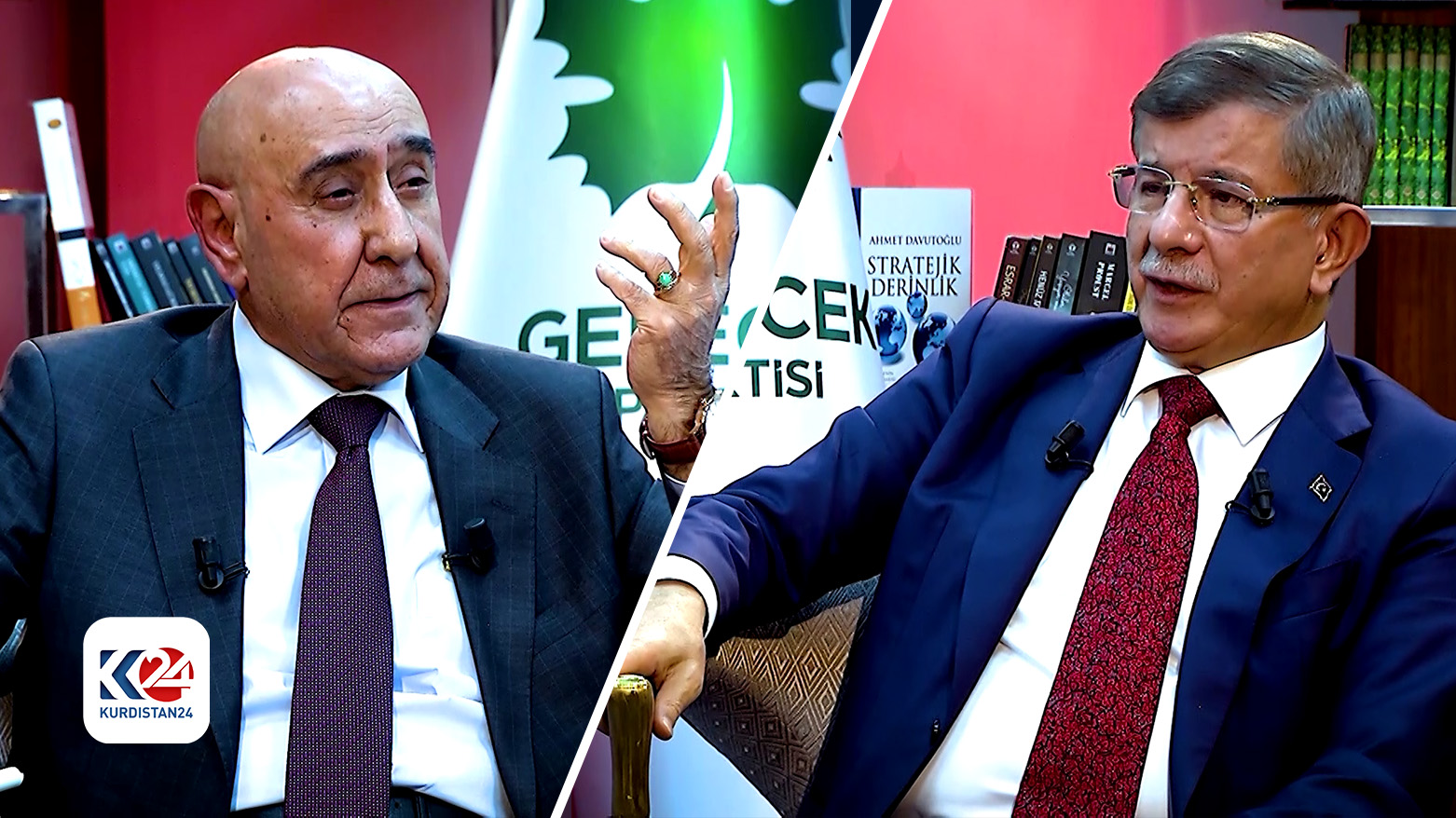Former Turkish PM warns of 'Historic pattern of regional suffering,' urges Middle East dialogue amid growing tensions
Drawing on his extensive diplomatic experience, Davutoğlu expressed deep concern about the parallels between current regional dynamics and historical patterns that have repeatedly led to regional fragmentation and conflict.

Nov. 19, 2024
ERBIL (Kurdistan 24) – Former Turkish Prime Minister Ahmet Davutoğlu offered a sobering assessment of the Middle East's current trajectory, warning that the region risks falling into another cycle of instability and division unless regional powers establish stronger dialogue mechanisms, during an exclusive interview with Kurdistan24's Farhad Rasool in Ankara.
Drawing on his extensive diplomatic experience, Davutoğlu expressed deep concern about the parallels between current regional dynamics and historical patterns that have repeatedly led to regional fragmentation and conflict.
"I really worry about the future of our region," Davutoğlu stated, outlining a century-long pattern of regional suffering following global power shifts. "In last 100 years from the First World War until now, after every big war or transformation, our region has suffered."
The former premier, who also served as Turkey's foreign minister, pointed to several historical watersheds that reshaped the region: the post-WWI Sykes-Picot agreement that divided traditional communities, the aftermath of WWII that sparked the Palestinian crisis, and the emergence of autocratic regimes following British and French colonialism.
Of particular concern to Davutoğlu is the current weakening of international institutions.
"Unfortunately, U.N. is much weaker than 5, 10 years ago," he observed, citing the ongoing Gaza conflict as evidence. "I was mediator in 2006, 2009, 2012, 2014 wars in Gaza... But now 1 year has passed, and there is no ceasefire."
The veteran diplomat warned against any attempts to redraw regional boundaries, employing a striking metaphor: "Territories in the region are like a very badly built wall. If you take one stone, all the wall will collapse." Instead, he advocated for strengthening regional cooperation and integration.
Davutoğlu expressed particular concern about certain U.S. policy circles, specifically warning about the influence of evangelical fundamentalists who view Israel as "a divine blessing."
He cautioned that such ideological approaches could further destabilize the region.
The solution, according to Davutoğlu, lies in enhanced regional dialogue and cooperation.
"Turks, Kurds, Arabs, and Iranians, they should be very careful not to be provocative against each other," he emphasized. "They should be ready to work together for a peaceful regional order owned by the people of our region."
The former prime minister advocated for a comprehensive approach to regional stability, including:
- Domestic reforms within all regional countries
- Peaceful relations between neighboring states
- Economic integration
- Cultural coexistence
- Multi-dimensional foreign policy
- Peace diplomacy
Reflecting on his time in office, Davutoğlu recalled his efforts to establish economic zones in Mesopotamia and the Levant, suggesting such initiatives could serve as models for future regional cooperation.
"We need to prevent any new war in this region," he stressed, adding that the resolution of regional challenges should come from within rather than being imposed by external powers. "We don't need American, maybe Russian for this... we will live together in this region, and we need to talk to each other directly."
This call for regional dialogue and cooperation comes amid escalating tensions in various parts of the Middle East, with Davutoğlu's analysis suggesting that the region stands at a critical crossroads between further fragmentation and potential integration.
The former premier's warnings and recommendations carry particular weight given his extensive diplomatic experience, including his role as mediator in previous Gaza conflicts and his academic background in international relations.